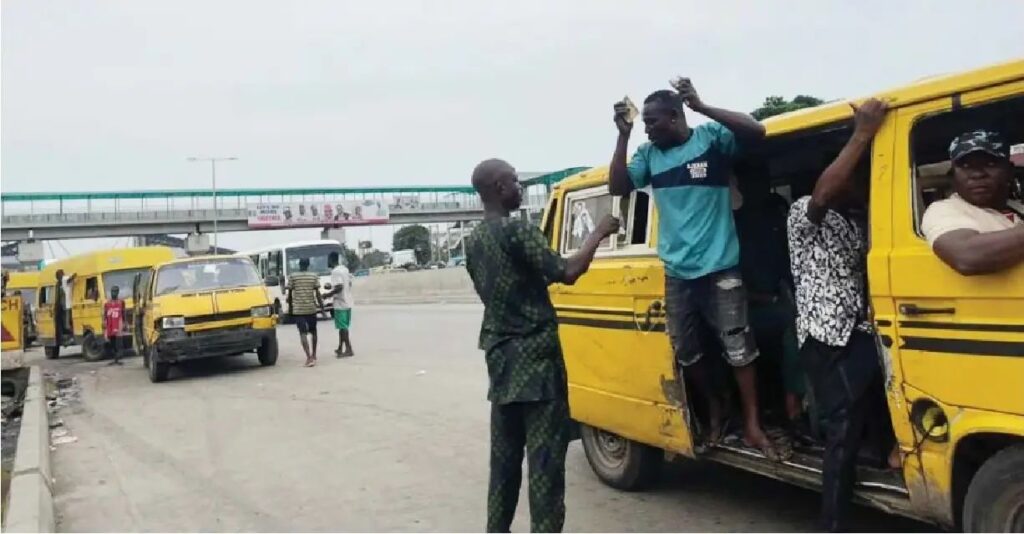In Nigeria, road usage is plagued by the illegal and harmful practice of arbitrary toll collections, often referred to as ‘ticket or sticker fees’ and other undefined fees. These collections are imposed by various entities, including local authorities, state and federal agencies, and unidentified individuals, on intracity, intercity, and major highways.

These illegal practices have severe negative consequences, including:
- Frustration and reduced productivity: delays and hassles at checkpoints cause significant frustration and time loss for road users.
- Astronomical increase in transportation costs: the multiple tolls add significantly to transportation costs, impacting businesses and individuals.
- Security threats: the presence of armed individuals at checkpoints creates a sense of insecurity, intimidation and fear for road users.
- Economic hardships: the financial burden of illegal tolls disproportionately affects all but more of low-income individuals and businesses.
- Traffic congestion: the constant stopping and starting at checkpoints contributes to traffic congestion, further exacerbating the problem.
Two major cases highlight the prevalence of illegal toll collections:
· Lagos State: a recent study done by the Danne Institute for Research titled “Behavioural Causes of Traffic Congestion in Lagos”, funded by the Bank of Industry and Africa Finance Corporation revealed that Lagos State loses 4 trillion Naira yearly to traffic congestions.
- Lagos-Benin Expressway: this crucial expressway among many others is also plagued by illegal tolls, further hindering economic activity and travel.
The categories of illegal toll operators are diverse, including:
- Government agents: some agents of recognised bodies, like police, military, and paramilitary personnel, indulge in these activities.
- Unions: associations like NURTW, RTEAN, MOALS, and tricycle associations are also involved.
- Louts and “agberos”: these individuals are often the most aggressive, using intimidation and violence to collect tolls.
The consequences of these illegal tolls can be severe, with instances of:
- Physical assaults: many cases of beatings and injuries have been reported at checkpoints.
- Fatalities: a recent incident on 14th May 2021 on the Upper Iweka expressway in Onitsha resulted in multiple deaths due to a dispute over illegal tolls.
- Damage to vehicles: louts and other operators often damage vehicles when their demands are not met.
Victims recount their experiences:
- Mr U. Onu: this freight forwarding agent narrates his ordeal of encountering six illegal toll collectors in one short trip, paying a total of N10,000.
- Nairametrics publisher: he experienced firsthand the extortion of illegal toll collectors and was forced to pay N60,000 for “land fees” after a tire puncture.
- Alhaji Kenny: a former NURTW member confirms that a large portion of collected tolls is retained by individuals and not remitted to the government.
The true extent of the problem is evident in a report by the ICIR, estimating the annual illegal toll collection on Lagos roads alone to be a staggering N123 billion.
Moving forward, curbing this menace requires comprehensive solutions:
- Strengthening law enforcement: dismantling illegal checkpoints and effectively enforcing laws against illegal tolls is crucial.
- Transparent tax system: implementing a transparent and legitimate tax collection system, with clear regulations and accountability, will eliminate the need for illegal tolls.
- Improved governance: enhancing transparency and accountability within the transportation sector is essential to address the root causes of these practices.
- Public awareness: raising public awareness about the illegality of such practices and promoting responsible road usage can empower individuals to resist extortion.
- Community engagement: engaging local communities and stakeholders in dialogues and solutions can create a collaborative approach to tackling the problem.
By implementing these solutions, Nigeria can create a safer, more efficient, and less exploitative environment for all road users. This will not only improve the lives of individuals but also contribute to the country’s economic growth and development.

